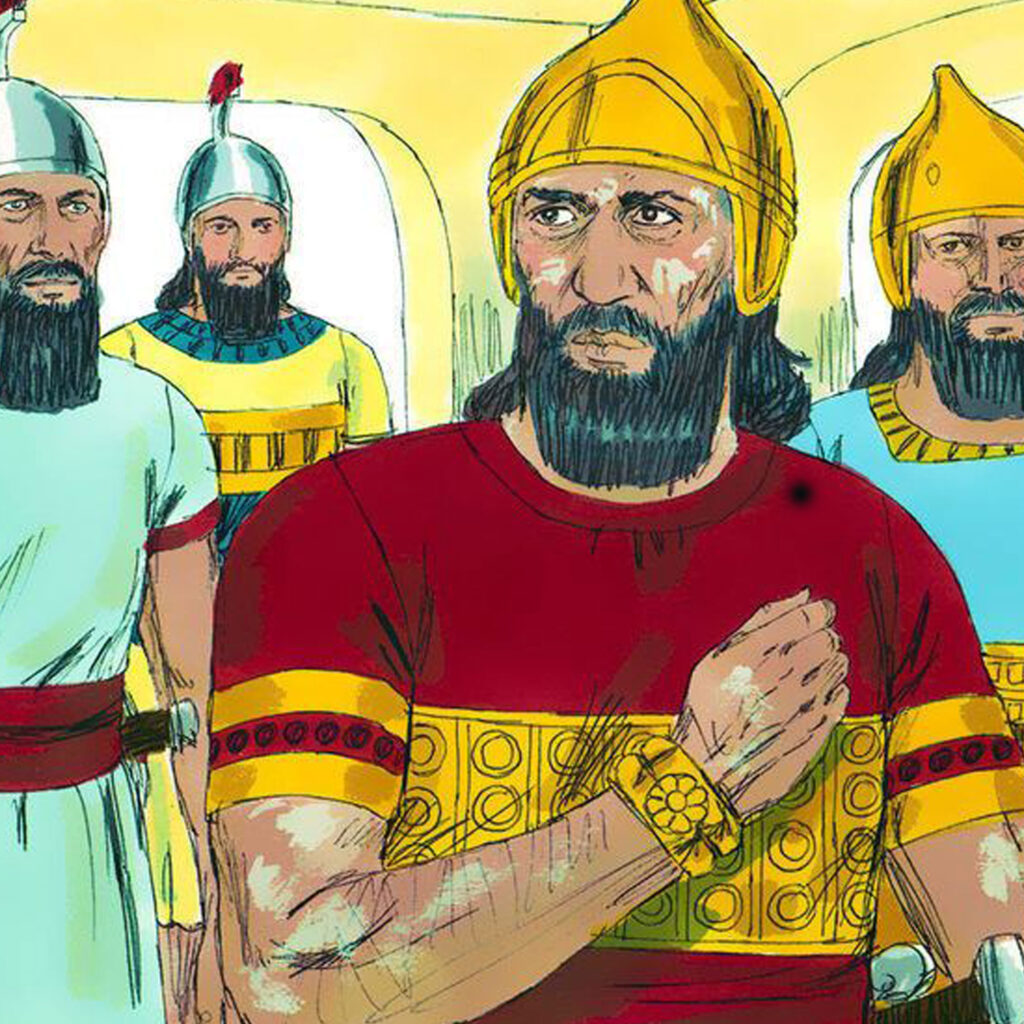
Leprosy, the dreaded disease so prevalent in the Bible, still exists today, though its definition has changed drastically. Now called Hansen’s disease, it refers to a specific type of bacterial infection treatable by antibiotics and much less contagious. The leprosy of the Bible was a different kind of monster—it was a death sentence. And like death, it was no respecter of persons.
Naaman was a very prestigious personage in ancient Syria. A war hero renowned for his bravery and honor, he was a captain of the Syrian army, wealthy, well-respected, and highly valued by Benhadad, the king (2 Kings 5:1). One would think that his was the epitome of a charmed life, except for one extremely important detail—Naaman was a leper.
This was not the kind of disease that stayed locked behind closed doors, a family secret, a skeleton in the closet. Everyone saw this; everyone knew what it meant—even the little captive slave girl that Naaman had brought back for his wife during one of his battles against the kingdom of Israel.
One day, the little slave, she of a pure, compassionate heart, told Naaman’s wife of a prophet in her homeland, a man used mightily by the true God who would be able to cure her master (v. 3). And Naaman and his wife believed her. What trust they must have had in the little Israelite, and how powerful a testament to her character and to the work God had done in her young heart!
So, with consent and letters of introduction from Benhadad himself, Naaman journeyed to Israel in search of this prophet. After an audience with Joram, king in Israel, who, if not for the prophet’s own interception, might have faithlessly spoiled the Syrian’s purpose, Naaman was led directly to the door of Elisha, the very man of whom his servant girl had spoken (vv. 6–9). There he arrived with his splendor and his entourage and bearing a mountain of payment in gold, silver, and clothing (v. 5).
Now the moment of truth had come. Who was this great prophet who could perform so great a miracle?
Reflect: How can we find blessings through our physical ailments? Why is it that we seem to seek after God more often and more consistently when we are physically distressed?

Naaman was about to be tested. In lieu of Elisha, there came a messenger with specific instructions: “Go and wash in the Jordan seven times, and your flesh shall be restored to you, and you shall be clean” (2 Kings 5:10).
Naaman was livid. He had come all this way, and this plebeian could not even spare the time to see him (v. 11)? Then, to add insult to injury, he was expected to bathe in that filthy excuse for a river (v. 12)? Was he so degraded that a sewage dump was better than he?
Infuriated, he started for home. But Naaman was generally a reasonable man, and his entourage knew that. It was his pride that had been wounded, nothing more. So they began to talk some sense back into him. “My father,” said his servants, “if the prophet had told you to do something great, would you not have done it? How much more then, when he says to you, ‘Wash, and be clean’?” (v. 13).
And Naaman had to admit they were correct. He saw now that it had been his own ego which had gotten in the way of his own well-being.
So he went to the Jordan River and did all that the prophet had commanded—and was healed (v. 14). Amazed, he rushed back to the prophet’s home. This time, Elisha came out to meet him.
“Indeed,” exclaimed Naaman, “now I know that there is no God in all the earth, except in Israel” (v. 15).
He knew it was not the river itself nor the ritual nor even the prophet who had cured his leprosy. Instantly, Elisha’s God became his God (v. 17). A new convert, he still had much to learn, for one, that God’s miracles were free gifts, not transactions (v. 16); and he would still have much with which to contend upon his return home to a people and king who worshipped false gods (v. 18). But Naaman had proved in his heart to be a man who sought truth, a man who was willing to admit his faults, a man who would give his all to God.
We know not what happened to Naaman after he returned to Syria, but his genuine conversion was singled out by the Messiah Himself (Luke 4:27).
Reflect: Are you in a position of authority? Are you willing to learn from others, even your subordinates? Remember, “Pride goes before destruction …” (Proverbs 16:18).
